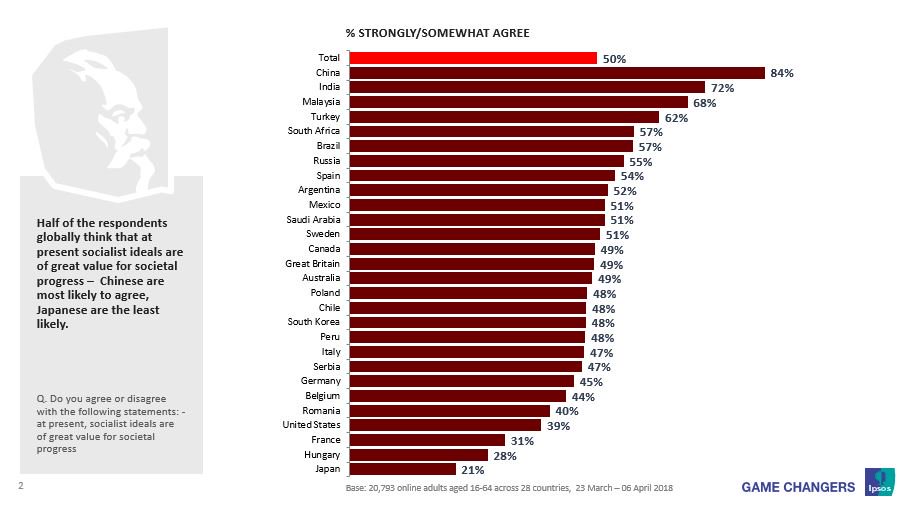How the world still embraces Karl Marx's socialist ideals after 200yrs — RT World News
Exactly 200 years after the birth of revolutionary philosopher Karl Marx, his work remains as relevant as ever. As socialism experiences a resurgence, people all over the world are embracing Marxist ideals.
A global survey conducted by Ipsos ahead of Marx’s 200th birthday questioned 20,000 adults in 28 countries on their views regarding various Marxist ideals such as free education, healthcare, and even a right to universal income.
Regarding the right to unconditional basic income, just over two-thirds of survey respondents supported the measure. Across all 28 countries, nearly eight in 10 think the rich should be taxed more to support the poor – this consensus was highest in Spain, Serbia, and China.
However, two-thirds of people globally were of the view that free market competition brings out the best in people, and nearly 70 percent agreed that it is right for people who are talented to earn more than those who are less gifted.
The problem being where is true merit free to actually flourish? Social mobility is fast coming to a standstill without government intervention rational social engineering guaranteeing equity of individual opportunity freedoms are curtailed and talent wasted? Company boards are stacked with friends of friends. So how can we expect change? – Analysis & Opinion – ABC News (Australian Broadcasting Corporation)
The Bering Sea’s ice has never melted this early before | Grist
On Alaska’s West Coast, the feeble April sun is shining this week on a fresh spot of open water. The sea ice found there for ages every spring is gone.
Ice in the Bering Sea, the narrow body of water between Russia and Alaska, has dropped to its lowest springtime level since at least 1850. In all that time, no other year has come close. After a winter filled with unusually high temperatures, sea ice now sits at less than 10 percent of what could previously be considered “normal”.
“We’ve fallen off a cliff,” said Rick Thoman, a climatologist at the National Weather Service in Alaska, in a tweet.



No comments:
Post a Comment